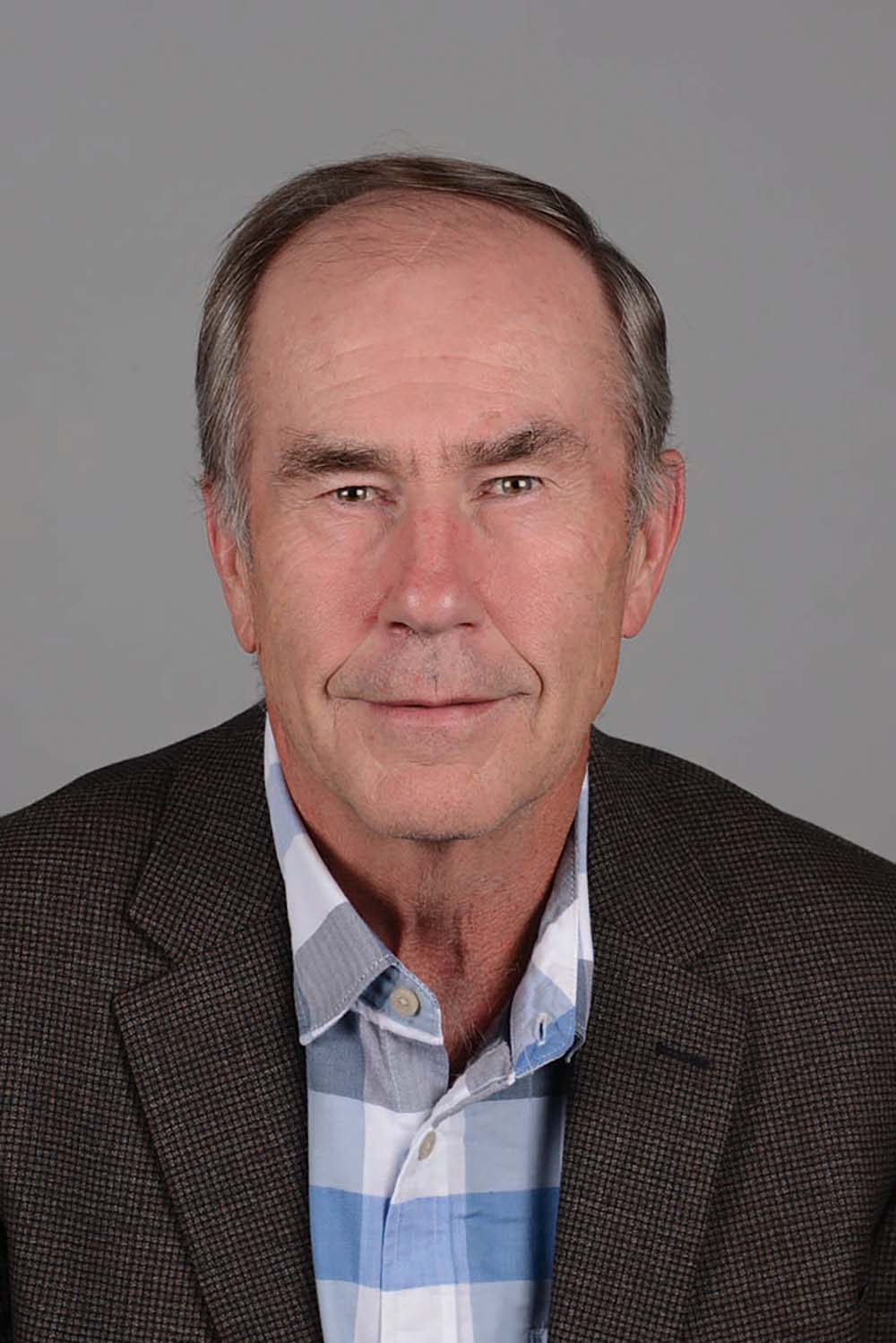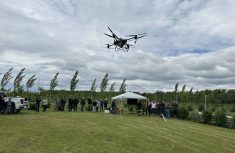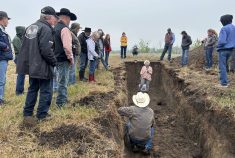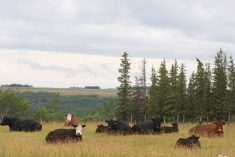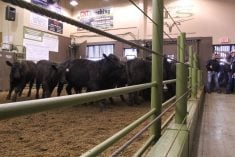When the Saskatchewan Agricultural Hall of Fame announced its 2023 inductees earlier this year, I was pleased to see long-time Canadian Cattlemen contributor Dr. John McKinnon on the list. McKinnon’s research career has focused on feed utilization, especially byproduct feeds, but he’s also dedicated a good deal of time to extension. McKinnon was the first Saskatchewan Beef Industry Research Chair at the University of Saskatchewan, which divided most of his time between research and extension. He was a founding organizer of the Western Canadian Feedlot Management School and was also involved with other events, such as the Saskatchewan Beef and Forage Symposium.
He’s also mentored many students. A 2016 Western Producer profile on McKinnon noted that his University of Saskatchewan office included a “crowded shelf of graduate thesis projects,” and stated at that time he had supervised or co-supervised more than 35 graduate and doctoral students, plus several post-doc researchers. In the same article, McKinnon credited good timing and mentorship to steering him into his career.
McKinnon was enrolled in a bachelor of science program at the University of Manitoba when a professor, Dr. Bob Parker, piqued his interest in agriculture. Parker, known for his research in swine genetics and breeding, and for his work with graduate and undergraduate students, became an early mentor for McKinnon.
Read Also
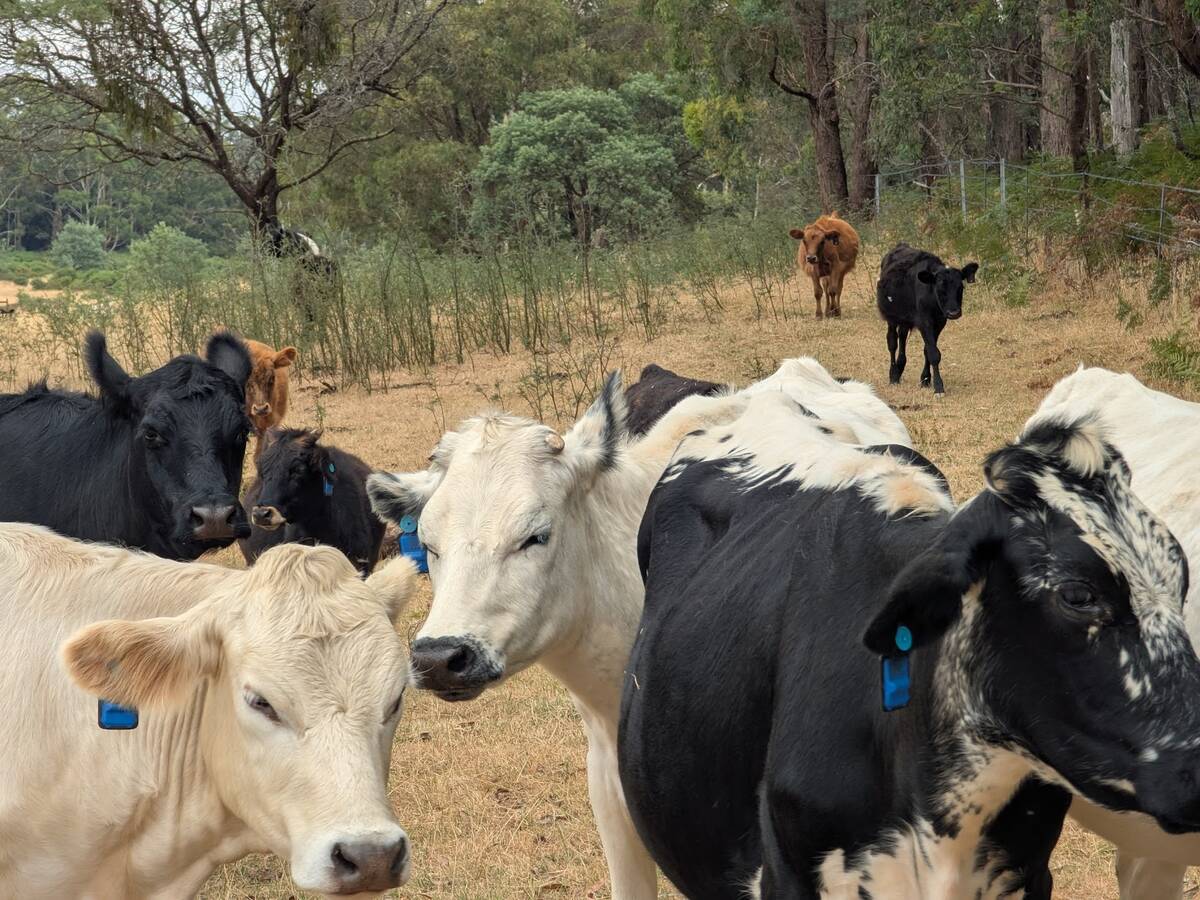
Australian company brings ear-tag tech to Canadian pastures
With Smart Paddock, beef farmers and ranchers can track their cattle through GPS technology
“At the time, job opportunities were good in agriculture and animal science,” says McKinnon. Following Parker’s advice, he switched to the bachelor of science in agriculture program in his second year.
“He actually encouraged me to go into graduate studies as well when I finished. I was tempted but I also had a job offer and I went with the job offer, which in hindsight was a very valuable opportunity, as I not only got a foot in the door on the livestock side of things, but I got to meet a lot of people on the marketing side as well within the feeding industry at that time. And it also brought me out to Saskatchewan.”
That job was with Canada Packers, where McKinnon trained as a cattle buyer. He initially worked in Brandon, Man., before moving to North Battleford, Sask. However, McKinnon wasn’t done with his studies yet. After working for Manitoba Agriculture for a couple of years, he earned a graduate degree in dairy nutrition, then a PhD focusing on protein requirements of feedlot cattle, both from the University of Saskatchewan.
McKinnon says his mentors set a high bar for how to interact with people, especially the ranching community. They made sure that applicable research was made available so that producers could use it. Along with Parker, McKinnon names Drs. Red Williams, Dave Christensen and Vern Racz as influential.
“They were all very instrumental in my early development. And when you look at Red Williams, he travelled the country, particularly Western Canada, from one end to the other and back again … just doing presentations, extension activities, extension articles.” Williams was known globally for his work in animal care and reproduction and was an early proponent of artificial insemination. He kept an office at the university, which he visited regularly, up until age 89.
On the dairy side, Christensen was dedicated to extension, “but he also was a very astute scientist” and “a great role model in terms of conducting research that was, in his case, applicable to the dairy industry.” Christensen helped establish feed testing principles in Saskatchewan and was one of the first nutritionists to flag the economic effects of trace mineral deficiencies. He was also “a tremendous mentor” to graduate and undergraduate students, McKinnon adds.
Racz was director of the Saskatchewan Feed Test lab at the University of Saskatchewan for many years, as well as the Prairie Feed Resource Centre. Most nutrition-related grad students, including McKinnon, “spent a fair bit of time at the lab doing rations and answering producer questions,” McKinnon says.
Racz dedicated a lot of time to interacting with producers, and “always stressed the importance of one-on-one extension,” says McKinnon.
An article about a scholarship in Racz’s honour on the university website refers to Racz’s feed testing lab as the “finishing school” for grad students. He also worked on international development with the university, promoting feeds such as alfalfa and canola in nearly 30 countries by the time he retired. In the same article, Christensen mentions that Racz designed rations for racing camels. I hope he got to see a few camel races.
As for the up-and-coming researchers, McKinnon has nothing but good things to say about them. They’re very enthusiastic, he says, and they have technology at their fingertips that lets them look more closely at issues facing producers.
Maybe it’s always been this way, he says, “but the next generation that’s come along, they’re smarter. They’re better trained.”
The Beef Cattle Research Council has programs for new PhD students and researchers, he says, that match them with more seasoned researchers and farmers and ranchers.
“They’re just getting a much more basic introduction to the issues producers are facing and to working with producers. So I think the combination of their education, the technology they’ve got, their enthusiasm, there’s just tremendous potential as we go forward with some of these young scientists who are in place today.”
For example, Dr. Gabriel Ribeiro, who is McKinnon’s successor as the Saskatchewan Beef Industry Chair, has “got a great program right off the bat, and it’s working really well.”
It’s not just researchers who can benefit from mentorship. There are mentorship programs available for farmers and ranchers, including the Canadian Cattle Association’s Cattle Young Leaders program, Agribition’s Next Gen program, as well as others through the breed associations. And let’s not forget about 4-H.
Sylvia Boorstein, a Buddhist teacher, has said that life is like an ocean that we’ve all been thrown into without knowing how to swim. Mentorship is one way to stay afloat and start swimming.
On behalf of the crew at Canadian Cattlemen, congratulations John, and thank you.


